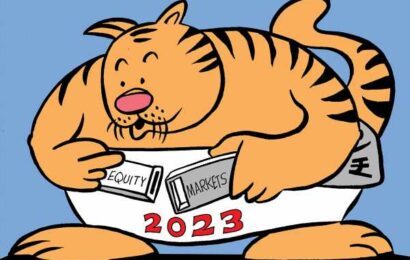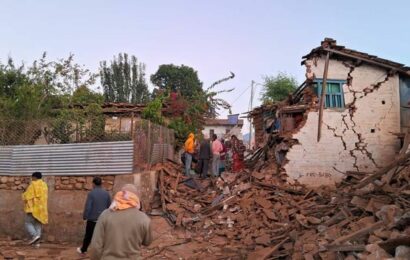‘They are too connected for the relationship to completely sour.’
‘It will be difficult to mend this relationship, but it will start with full and clear evidence on the issue in question.’
“The India-Canada relationship look very strained now. The next step is for direct and verifiable evidence to emerge advancing understanding of the case. Until that happens, we will remain in a stalemate,” says Dr Neilesh Bose, Associate Professor and Canada Research Chair, Department of History at the University of Victoria in Canada.
“For the Indian diaspora in Canada, the situation appears tense, as within diasporic communities there is great division and this issue only further divides the community on political lines.
“For the Indian students of Canada, it has introduced a climate of fear and suspicion, though much of those fears are unwarranted,” Dr Bose tells Rediff.com‘s Archana Masih in an e-mail interview.
A week has passed since Prime Minister Trudeau made this allegation. In your assessment, how has this played out in Canada?
In Canada, the allegations have been reiterated by official sources, though Trudeau has mentioned that he does not wish to provoke India, but rather to invite India to work with Canada on this matter.
Many in the Punjabi Sikh community are supportive of Trudeau and Canada’s statements, as they feel Canada is looking out for the Canadian Sikh population.
Some in Canada, including many Canadians of Indian origin but of other faiths, are more inclined toward India and wish to wait for the evidence to come out before making any judgment about the issue. As we know, attacks on Hindu temples and Indian consulates have occurred.
How will this benefit Mr Trudeau? By projecting himself as the guardian of Canadian interests, will it boost his numbers at the opinion polls?
It may boost his numbers in certain polls, but it also poses the danger of reducing his numbers amongst those in Canada and abroad who view Khalistan activists as a significant threat to India’s sovereignty and security.
Why is the Sikh constituency so important for Canadian politicians that they ignore India’s repeated concerns about the Khalistani threat to India’s integrity?
The Canadian Sikh constituency is viewed as an especially significant portion of the Canadian electorate, and especially in British Columbia where they hold long standing links to local government, business, agriculture, and a variety of sectors.
In the last couple of days there have been fears expressed of clashes between the Sikh and non-Sikh segments of the Indian diaspora in Canada.
Do you think that this a possibility, a hark back to the clashes that one saw in the 1980s synchronising with the troubles in the Punjab?
I don’t think it is likely that the clashes will return to the level of the 1980s, a time of extreme violence, militancy and Indian State-directed militarisation of the Punjab.
In the intervening years, the climate has mostly become much more positive, especially with many different types of Indian migrants entering and settling into Canada.
In the short term how do expect this to play out for:
1. The India-Canada relationship;
2. The Indian diaspora in Canada;
3. The large number of Indian students who come to Canada to study?
I think for the India-Canada relationship, the ties look very strained now. The next step is for direct and verifiable evidence to emerge advancing understanding of the case.
Until that happens, we will remain in a stalemate.
For the Indian diaspora in Canada, the situation appears tense, as within diasporic communities there is great division and this issue only further divides the community on political lines.
For the Indian students of Canada, it has introduced a climate of fear and suspicion, though much of those fears are unwarranted.
Can the relationship, which has already hit an all-time low, sink even further? How hard will it be to mend the India-Canada relationship?
I don’t believe the relations will sink even further. There are numerous types of ties between India and Canada and the vast majority are positive and speak to the long-standing cordial relations between two countries.
They are too connected for the relationship to completely sour. It will be difficult to mend this relationship, but it will start with full and clear evidence on the issue in question.
If India is found to be responsible, they must be held accountable. If Canada has misstated or overstated their claims, they must publicly say so, and commit to transparency moving forward.
How do you think the US is reading this situation and is likely to respond?
The US is following this closely, as a member of the 5 Eyes (the US, UK, Australia, New Zealand and Canada) which does not include India, but as a member of the Quad, which does include India, Australia and Japan.
They view India as a close and treasured ally, especially in the Indo-Pacific region, where India is crucial for the containment of China. But they also commit to the 5 Eyes and are publicly showing their support to Canada; they have announced that President Biden and other US officials have been in talks with Canada on this issue and will support a full and complete investigation.
Feature Presentation: Aslam Hunani/Rediff.com
Source: Read Full Article




